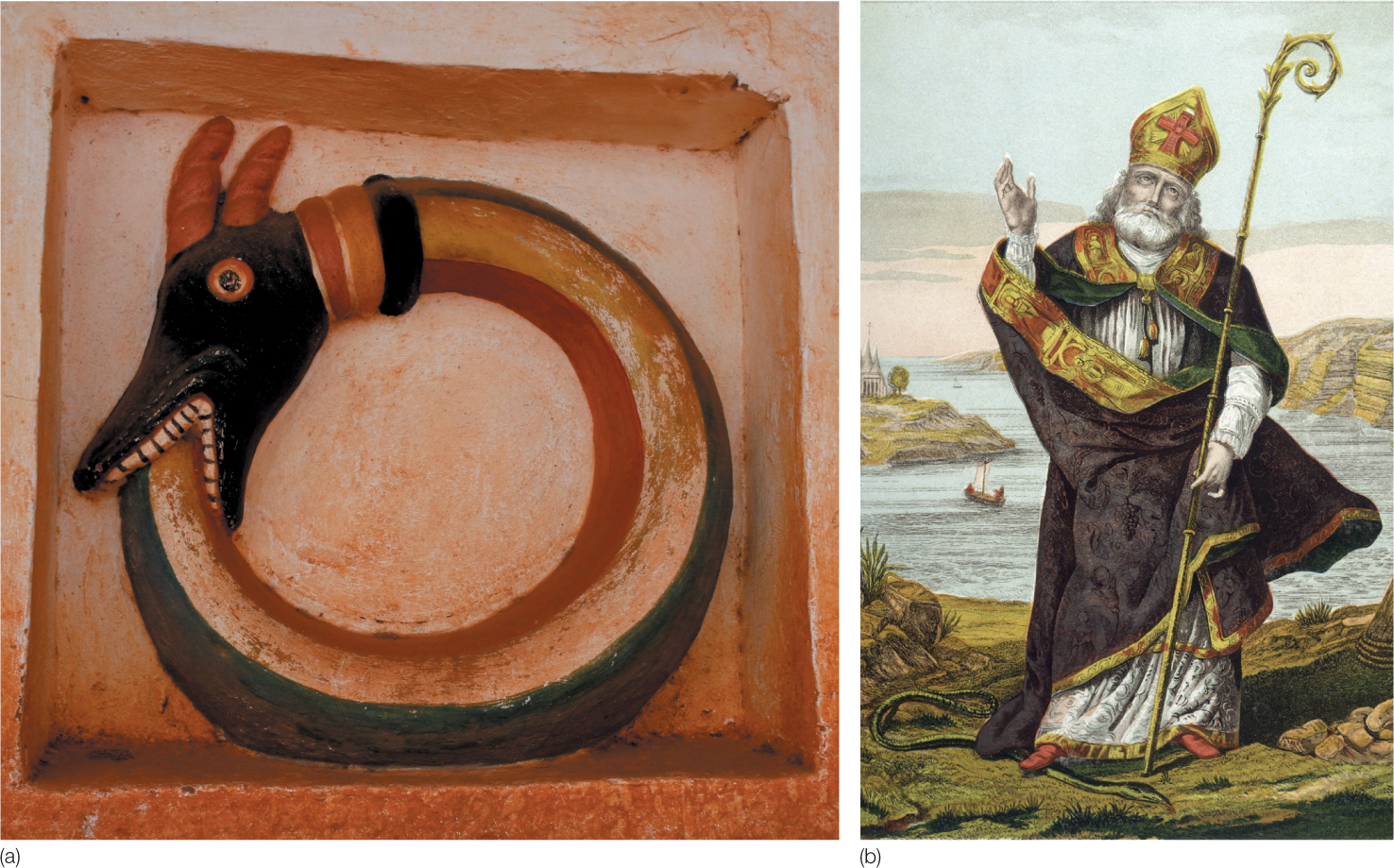Classifying Religions
Classifying Religions
proselytic religion A religion that actively seeks new members and aims to convert all humankind.
universalizing religion Also called proselytic religion, it expands through active conversion of new members and aim to encompass all of humankind.
ethnic religion A religion identified with a particular ethnic or tribal group; it does not seek converts.
Different types of religion exist in the world. One way to classify them is to distinguish between proselytic and ethnic faiths. Proselytic religions, such as Christianity and Islam, actively seek new members and aim to convert all humankind. For this reason, they are sometimes also referred to as universalizing religions. They instruct their faithful to spread the Word to all the Earth, using persuasion and sometimes violence to convert the “heathen.” The colonization of peoples and their lands is sometimes a result of the desire to convert them to the conqueror’s religion. By contrast, each ethnic religion is identified with a particular ethnic or tribal group and does not seek converts. Judaism provides an example. At its most basic, a Jew is anyone born of a Jewish mother. Though a person can convert to Judaism, it is a complex process that has traditionally been discouraged. Proselytic religions sometimes grow out of ethnic religions—the evolution of Christianity from its parent Judaism is a good example.
monotheism The worship of only one god.
polytheism The worship of many gods.
Another distinction among religions is the number of gods worshipped. Monotheistic religions, such as Islam, Christianity, and Judaism, believe in only one God and may expressly forbid the worship of other gods. Polytheistic religions believe there are many gods or spirits. For example, Vodun (also spelled Voudou in Haiti or Voodoo in the southern United States) is a West African religious tradition with adaptations in the Americas wherever the enslavement of Africans was once practiced. Though, as with most major religions, there is one supreme God, it is the hundreds of spirits, or iwa, that Vodun adherents turn to in times of need.
syncretic religion A religion or strands within a religion, that combines elements of two or more belief systems.
Finally, the distinction between syncretism and orthodoxy is important. Syncretic religions combine elements of two or more different belief systems. Umbanda, a religion practiced in parts of Brazil, blends elements of Catholicism with a reverence for the souls of Indians, wise men, and historical Brazilian figures, along with a dash of nineteenth-century European spiritism, which is a set of beliefs about contacting spirits through mediums. Caribbean and Latin American religious practices often combine elements of European, African, and indigenous American religions. Sometimes, in order to continue practicing their religions, people in this region would hide statues of Afrocentric deities within images of Catholic saints. Or they would determine which Catholic figures were most like their own deities. Note in Figure 7.1 the equation of Danbala, the snake-god of Haitian Voudou, with Saint Patrick, who is also associated with snakes.

Thinking Geographically
Question 7.1
Why do snakes figure in so many religious traditions?
orthodox religion Strand within most major religions that emphasizes purity of faith and is not open to blending with elements of other belief systems.
fundamentalism A movement to return to the founding principles of a religion, which can include literal interpretation of sacred texts or the attempt to follow the ways of a religious founder as closely as possible.
Orthodox religions, by contrast, emphasize purity of faith and are generally not open to blending with elements of other belief systems. The word orthodoxy comes from Greek and literally means “right” (ortho) “teaching” (doxy). Many religions, including Christianity, Judaism, Hinduism, and Islam, have orthodox strains. So, for instance, although some orthodox Jews closely follow a strict interpretation of the Oral Torah (a specific version of the Jewish holy book), moderate but observant Jews may observe only some or perhaps none of the dietary, marriage, and worship proscriptions observed by orthodox Jews. Intolerance of other religions, or of those fellow believers not seeming to follow the “proper” ways, is associated with fundamentalism rather than orthodoxy. Many who consider themselves orthodox are in fact quite tolerant of other beliefs. Fundamentalism is a movement to return to the founding principles of a religion, which can include literal interpretation of sacred texts or the attempt to follow the ways of a religious founder as closely as possible.